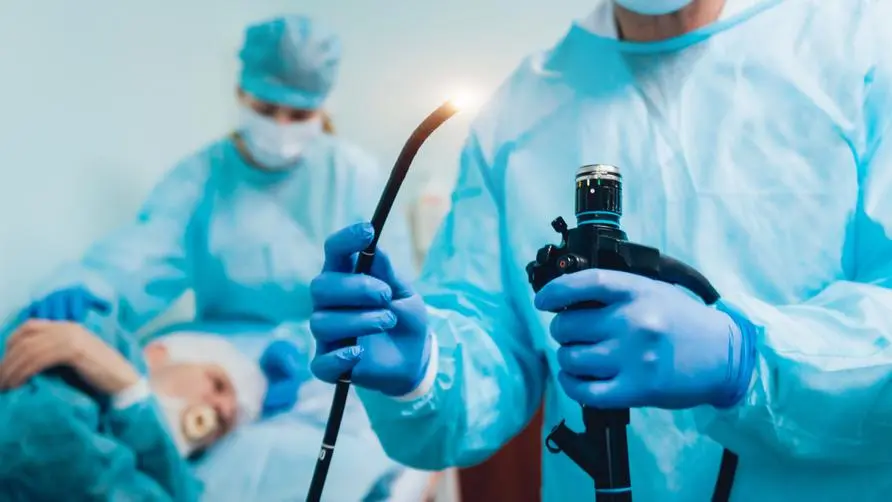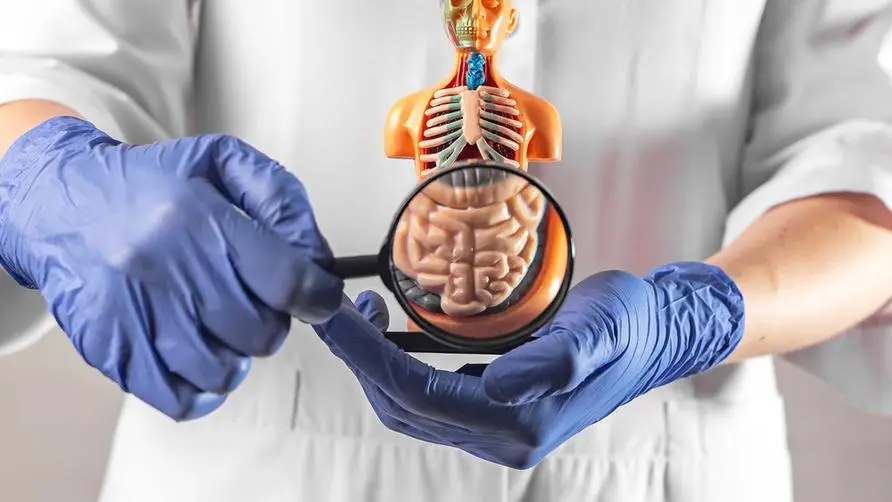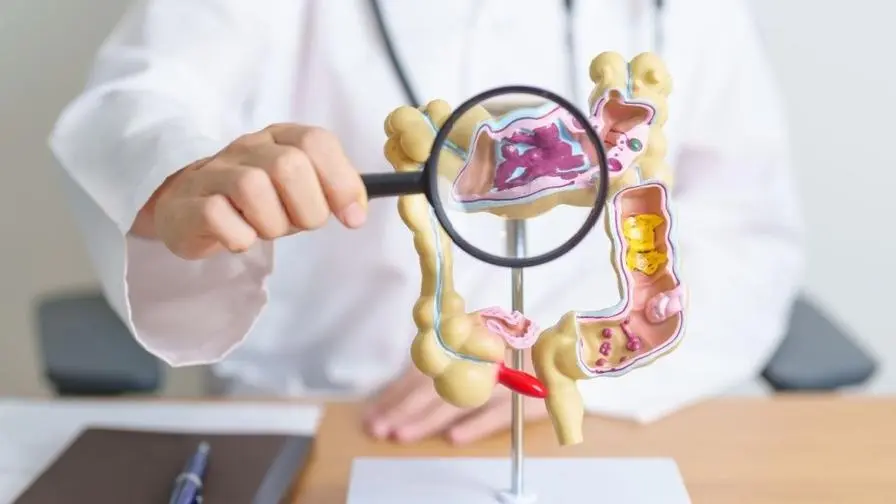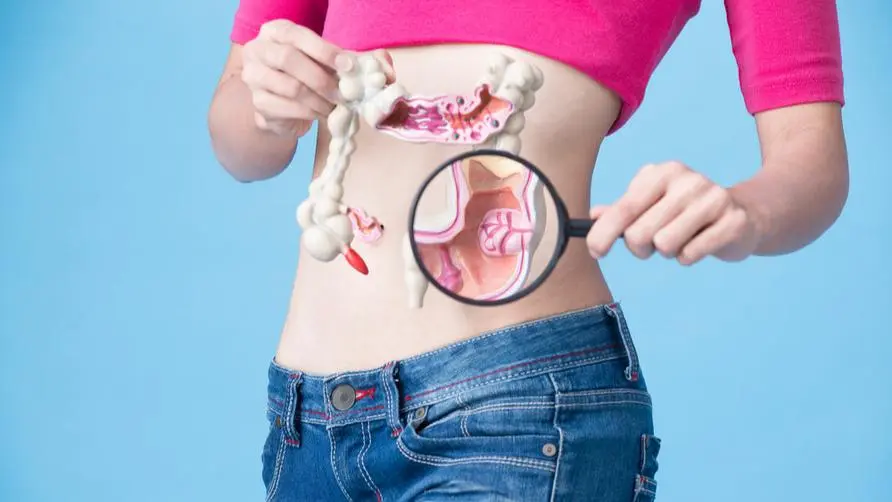Worried about an increase in the number of people being screened for late-stage colorectal cancer? At what age should you have a colonoscopy? See a doctor immediately if you see 3 symptoms

After surgery for colorectal cancer, she did not dare to return for a follow-up visit. Her vaginal discharge worsened to stage 4
Colorectal cancer continues to be the first among the top ten cancers in Taiwan, with approximately 17,000 people diagnosed every year. If diagnosed with colorectal cancer, it is necessary to receive complete treatment to avoid “original recurrence” of the tumor. A 57-year-old Kinmen woman was diagnosed with stage III colorectal cancer. Although she underwent surgery, she did not continue receiving chemotherapy because she was worried about the epidemic. The tumor recurred only 9 months later, with large amounts of blood, pus, and secretions oozing from her perineum and anus. She had to change diapers 2-3 times a day, and when she finally returned to the outpatient clinic, she had developed stage 4 metastatic colorectal cancer.
Dr. Huang Shengjie from the Colorectal Surgery Department of Taipei Veterans General Hospital who treated the patient said that surgery is the main treatment for stage 1-3 colorectal cancer. After stage 3-4, the importance of chemotherapy gradually increases. The patient died last year due to the severe epidemic. I did not dare to go to Taiwan for follow-up consultation, and missed the most important adjuvant chemotherapy that affects the prognosis of stage 3 colorectal cancer. Not only did it recur locally, but it also developed distant metastasis.
Worried about the drop in the number of colorectal cancer screenings due to the epidemic, the number of late-stage diagnoses may increase in the future
Professor Yang Chunhao, Chairman of the Society of Colorectal Surgery, said that the COVID-19 epidemic has reduced people’s willingness to go to the hospital for screening. According to the National Health Insurance Colonoscopy Application Data, the number of colonoscopy examinations and resections in 2020 decreased by approximately 8% compared with the previous year. Surgery was also reduced by 5%. It is estimated that the proportion of new diagnoses of late-stage colorectal cancer in the next few years is likely to increase slightly due to a decrease in the number of screening tests. It can be seen from clinical outpatient clinics that about 20% of patients have delayed treatment due to the epidemic, resulting in worsening of their condition.
Professor Yang Chunhao reminded that the three most common clinical symptoms of colorectal cancer patients are abdominal distension and pain, bloody stools with mucus, and obvious changes in defecation habits. Other symptoms include constipation, thin stools, weight loss, anemia, and palpable lumps. Although these symptoms are not specific, they are relatively common. When you feel you have suspicious symptoms, you should go to a gastroenterology department or colorectal surgery department for further examination.
Regular screening is very important to prevent colorectal cancer. Professor Yang Chunhao said that the general public is recommended to have a fecal occult blood test every 2 years. Those with a positive occult blood test must undergo a colonoscopy; those with a family history of colorectal cancer should undergo a colonoscopy every 5 years starting from the age of 40. Colonoscopy; patients with hereditary non-polyposis colorectal cancer should undergo colonoscopy every two years starting from the age of 20-25; if the clinical diagnosis or genetic test is “adenomatous polyposis syndrome”, it should be done as early as 10-12 years old. Get a screening colonoscopy every year.
Precision treatment and multi-specialty team targeted drugs, the more lines of treatment, the longer the survival
The treatment of advanced colorectal cancer has made great progress since 2000. Dr. Huang Shengjie pointed out that in the early years, only chemotherapy drugs were available, and the survival rate of stage 4 colorectal cancer was only 10 months. After 2000, various drug treatment combinations were gradually introduced. Now the first-line remission rate for advanced colorectal cancer can reach 70%, and the disease control rate can reach 90%. This means that combined with chemotherapy, 70% of patients’ tumors can shrink, and 90% of patients’ tumors will not expand under chemotherapy.
Dr. Huang Shengjie said that the current treatment concept for colorectal cancer treatment is that “precision medicine” will determine the treatment process and drug selection based on the characteristics of genetic mutations. Patients can determine whether they are suitable for anti-vascular growth target drugs by testing RAS, BRAF, MSI and other genes, and then continue using anti-epidermal growth targets as the third line. The more targeted drugs used in relay treatment, the longer the survival period can be obtained.
In addition, the coordination, communication and cooperation of multi-specialty teams can help provide patients with more appropriate treatment. Dr. Huang Shengjie pointed out that colorectal cancer not only has surgical treatment, but also will introduce medical teams such as hematology and oncology, pathology, radiology, diagnostic imaging and personal care. According to statistics from Taipei Veterans General Hospital, the prognosis of colorectal cancer patients cared for by a multi-specialty team can be improved by up to 14%.
“Every colorectal cancer patient’s genetic expression is different, so it is inappropriate to use the same treatment model!” Dr. Huang Shengjie said that colorectal cancer has progressed from surgery to systemic treatment, and the treatment effect of advanced colorectal cancer in Taiwan is better than In Japan, South Korea, Europe and the United States, it is related to the payment of drugs for lines 1-4, especially the completion rate of chemotherapy for stages 3-4. Patients are reminded to follow the doctor’s instructions, maintain a correct attitude, and actively return for follow-up and treatment, which will help prolong overall survival. Expect.
Further reading:





